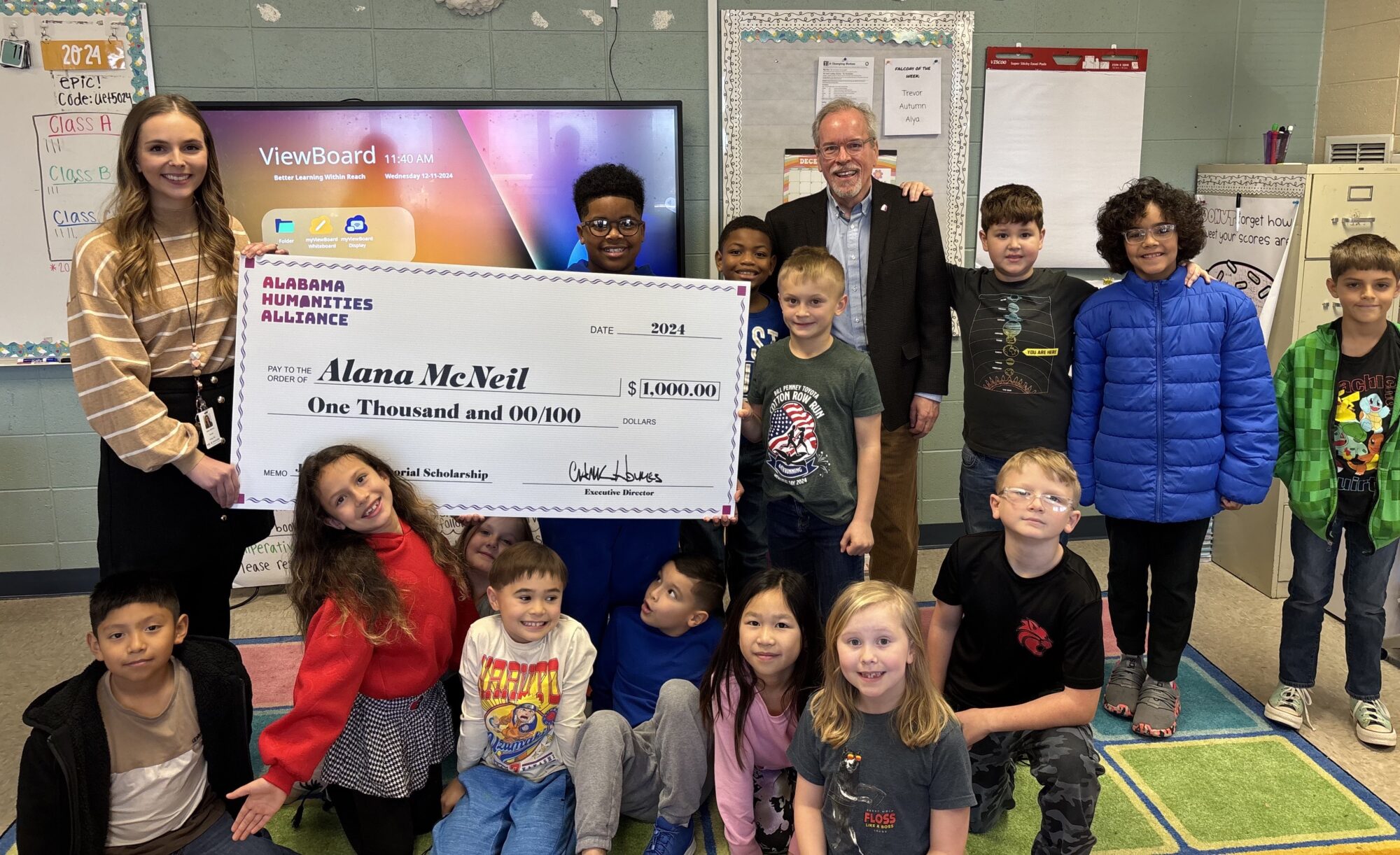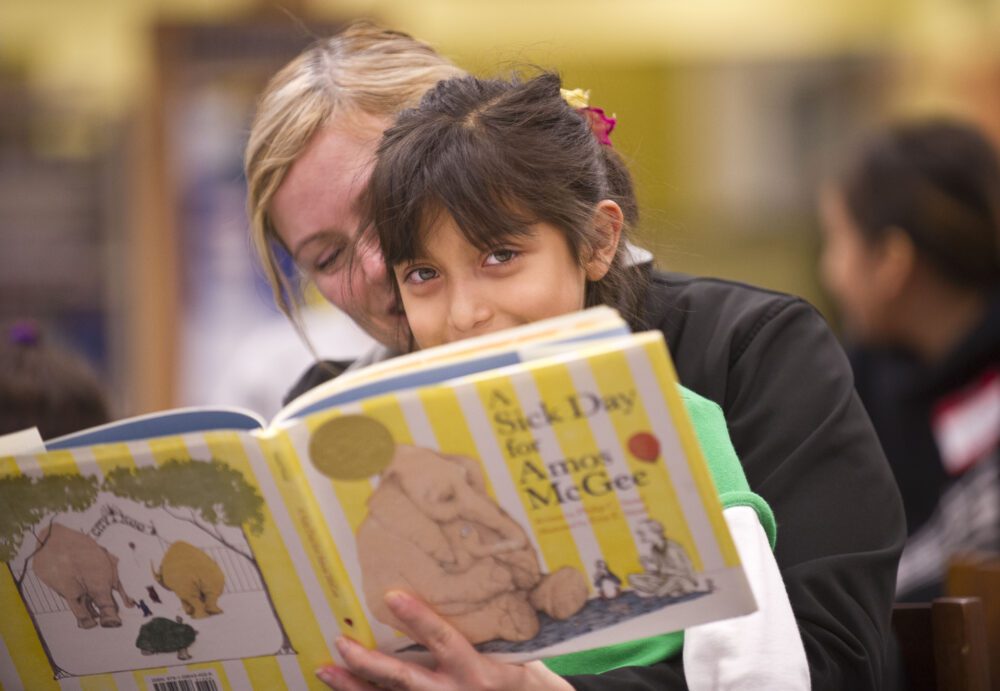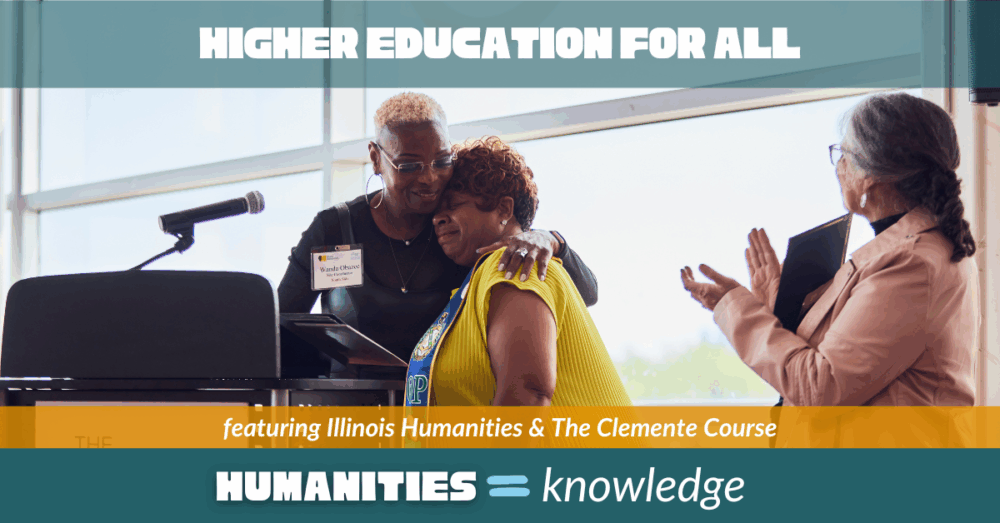Our nation’s 56 state and jurisdictional humanities councils are nonpartisan 501(c)3 nonprofit organizations established in 1971 by Congress to make outstanding public humanities programming accessible to everyday Americans.
Supporting teachers, students, and their schools is a common theme across humanities councils. Many have at least one grant or program dedicated to improving the educational experience for K-12 teachers and students. Here are just seven examples of how humanities councils support teachers and schools across the US.
States featured in this article: Alaska | Alabama | Louisiana | Kentucky | Idaho | Arizona | Texas
Alaska Humanities Forum organized a summit to connect and empower Alaska Studies teachers
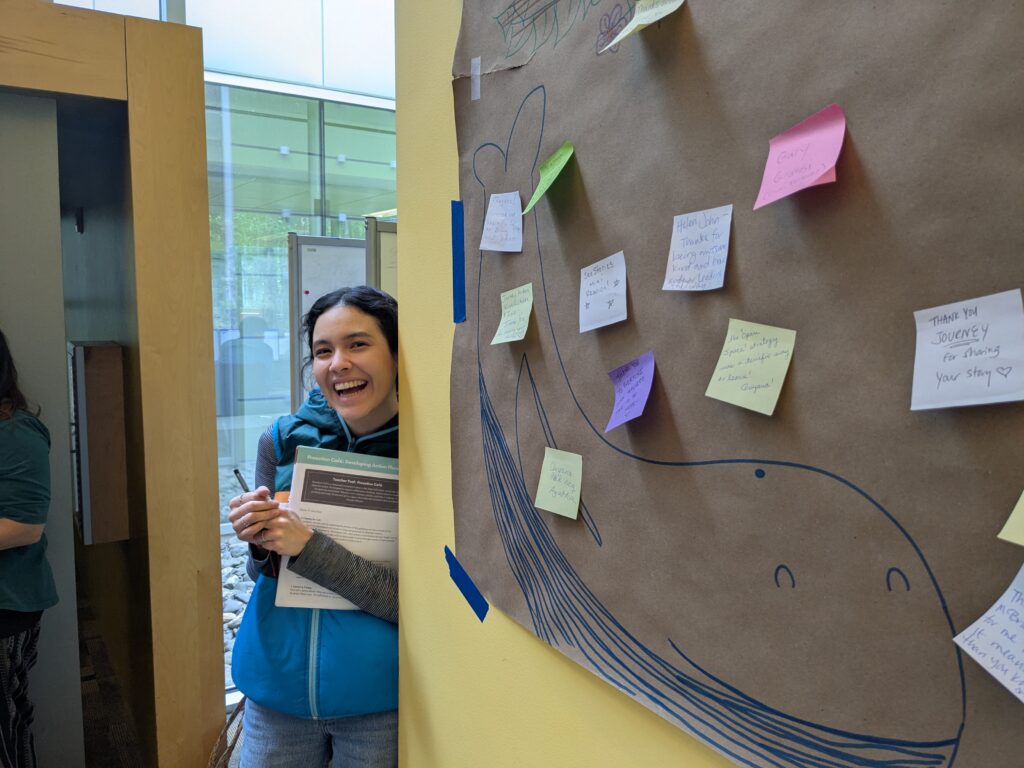
The first Alaska Studies Educator Summit was held in May 2025. This gathering, organized by the Alaska Humanities Forum, aimed to connect and support current Alaska Studies teachers. Educators shared resources and strategies that are working in their classrooms, learned from each other, and built a network so they can continue helping each other navigate the challenges and complexities of teaching this class throughout the year.
In an article on their website, the Alaska Humanities Forum shared the story behind this new initiative:
“Alaska Studies is a tough class to teach. Teachers have to fit a long and complex history into one semester, there’s no statewide curriculum, some topics are really hard to discuss, and compounding everything, Alaska Studies is often assigned to newer teachers from out of state. Teachers statewide have expressed their frustrations to the [Alaska Humanities Forum] for the past several years, so when an opportunity to design and host an Alaska Studies summit arose through Senator Murkowski’s office in early 2024, [Alaska Humanities Forum] staff jumped at the chance to help.”
Alaska Humanities Forum also supports teachers through their Cross-Cultural Competence (C3) Educator Program, which guides new-to-rural-Alaska teachers through a cultural induction experience program. Educators who come through C3 gain the tools, support, and confidence to sustainably build welcoming school spaces that reflect and honor the cultures of their communities. C3 increases teacher retention and supports growing more local teachers.
Learn more about the Alaska Humanities Forum.
Alabama Humanities Alliance gives scholarships to Alabama K-8 educators to support history and civics projects in their classrooms
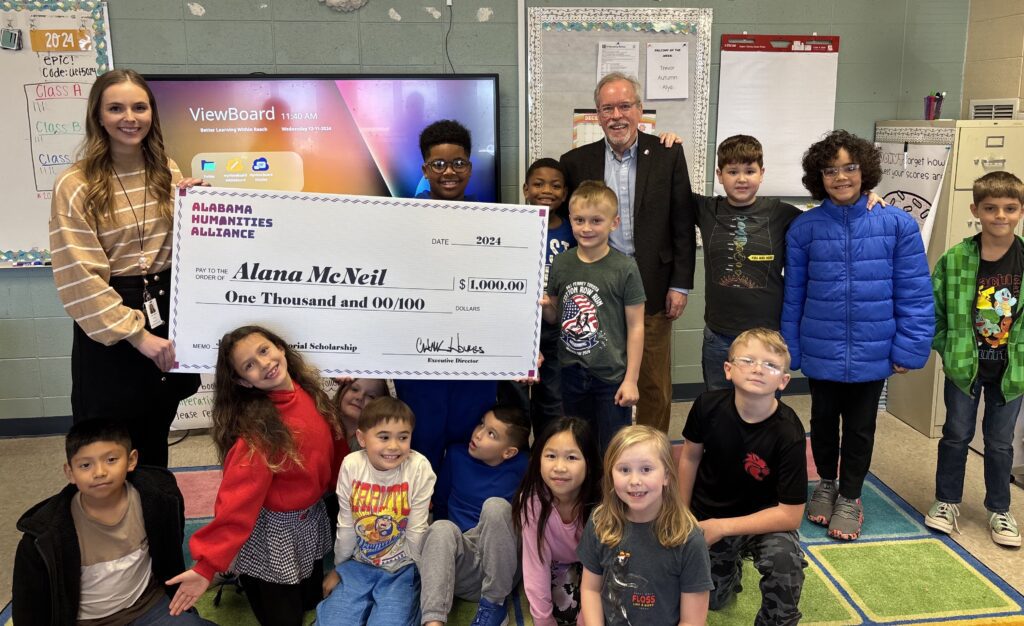
Created in 2003, the Alabama Humanities Alliance’s Jenice Riley Memorial Scholarship recognizes educators who demonstrate an extraordinary commitment to enhancing the quality of education in Alabama. This competitive scholarship (doubled from $1,000 to $2,000 in 2025) is awarded to Alabama K-8 educators in support of history- and civics-related projects in their schools and classrooms. The award aids teachers in attending a conference, purchasing classroom materials, or creating programs that enhance students’ understanding of history and civics. The scholarship is funded by the W. Edgar Welden Fund for Education.
In 2024, two educators were named Riley Scholars:
Alana McNeil at Farley Elementary School applied for the scholarship to fund map reading in her third-grade classroom. “Map reading is an essential life skill that modern students may need help with,” she wrote in her application, noting that it integrates “math, reading, language, cooperative learning, and critical thinking skills.” Alana’s scholarship enabled her to purchase maps, learning center supplies, and map puzzles.
Shatia Howard at Lakewood Elementary School applied to fund books and supplies related to diversity and culture in her kindergarten classroom. “By introducing students to a range of cultures and backgrounds,” she explained, “students will enhance their social-emotional learning, empowering them to become more empathetic and compassionate individuals. Shatia’s scholarship enabled her to purchase books, supplies, and a buddy bench.”
Learn more about the Alabama Humanities Alliance.
The Louisiana Endowment for the Humanities helps state educators learn and implement new state standards through workshops and online resources
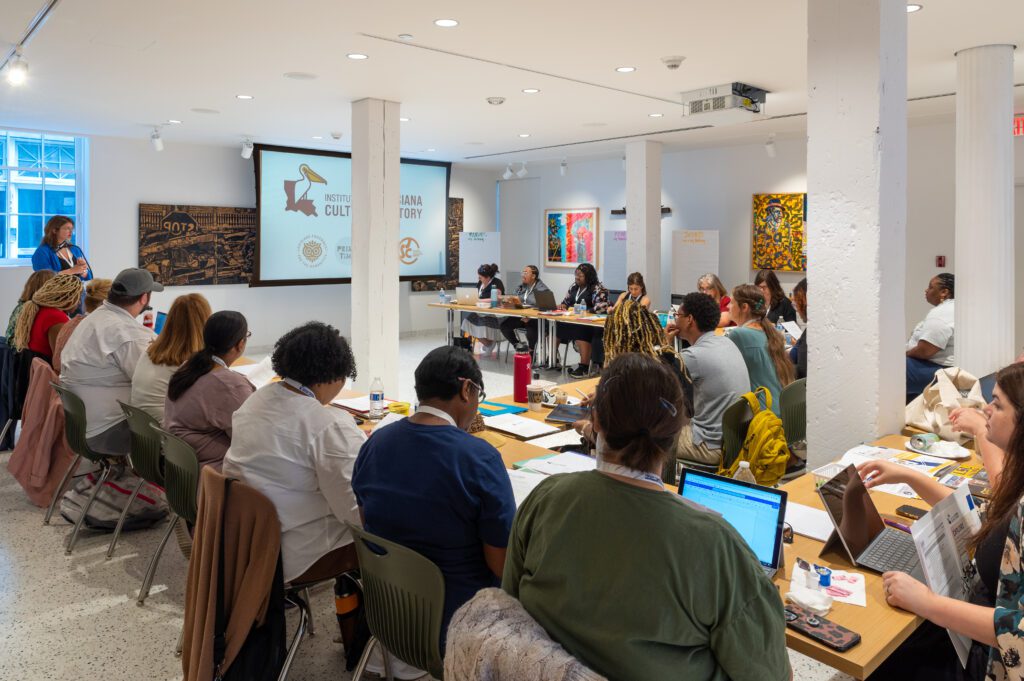
In 2022, the Louisiana Department of Education (LDOE) announced a completely new set of standards for social studies. The new standards integrate Louisiana history into each grade from 4th-8th, requiring teachers to place regional subjects into a wider world history timeline. Many educators faced the challenge of learning new Louisiana-specific content and developing grade-appropriate state history lesson plans from scratch.
The Louisiana Endowment for the Humanities (LEH) saw the challenges educators were facing and partnered with the Louisiana Department of Education to support teachers through the Institute for Louisiana Culture and History (ILCH)
Through the Institute for Louisiana Culture and History, LEH offers free high-quality online resources and free in-person workshops. At three-day summer intensives in New Orleans and regional one-day workshops, K-12 educators learn from recognized historians, scholars, and curriculum and instructional specialists.
Read our full story on the Institute for Louisiana Culture and History, which won a Schwartz Prize for excellence in humanities programming from the Federation in 2024.
Learn more about the Louisiana Endowment for the Humanities.
Kentucky Humanities brings engaging speakers and book giveaways to schools around the state—at no cost to the schools
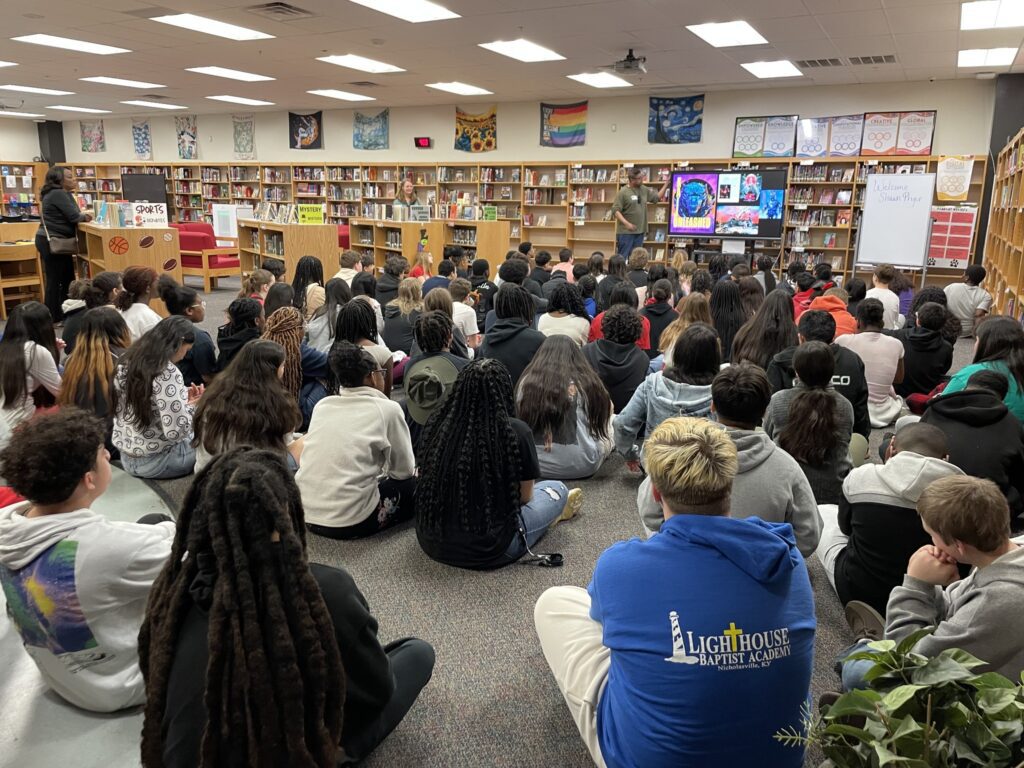
Kentucky Humanities at the Schools is a student outreach program of the Kentucky Book Festival, organized every year by Kentucky Humanities. The program brings authors and speakers to dozens of schools across the state to meet students in an exciting, interactive learning experience—all at no cost to schools.
In 2025, twenty-seven schools were selected to receive an author/speaker sponsored by Kentucky Humanities. The speakers vary from picture book authors to storytellers and presenters from the Kentucky Humanities Speakers Bureau. During the visits, speakers meet with an assembly of students and present on a topic or engage the students in an interactive learning experience. If the speaker is a children’s author, Kentucky Humanities may purchase a set of books as a gift for the library of the school. Twelve of the selected schools will also receive personalized books by the visiting author for all children in attendance.
As of April 2024, over 700 students in grades K-12 have been reached through the Kentucky Humanities at the Schools program, and 435 students have received personalized books to take home as gifts.
Jessica Stepp, the library media specialist at Clearfield Elementary in rural Rowan County, had this to say about hosting Kentucky Humanities at the Schools: “We have worked really hard to build a culture of reading this year in our school…The students have enjoyed this so much, and I’ve already had one asking while standing in line ‘Ms. Stepp, when can we do this again,’ so we appreciate the opportunity to do this so much.”
Learn more about Kentucky Humanities.
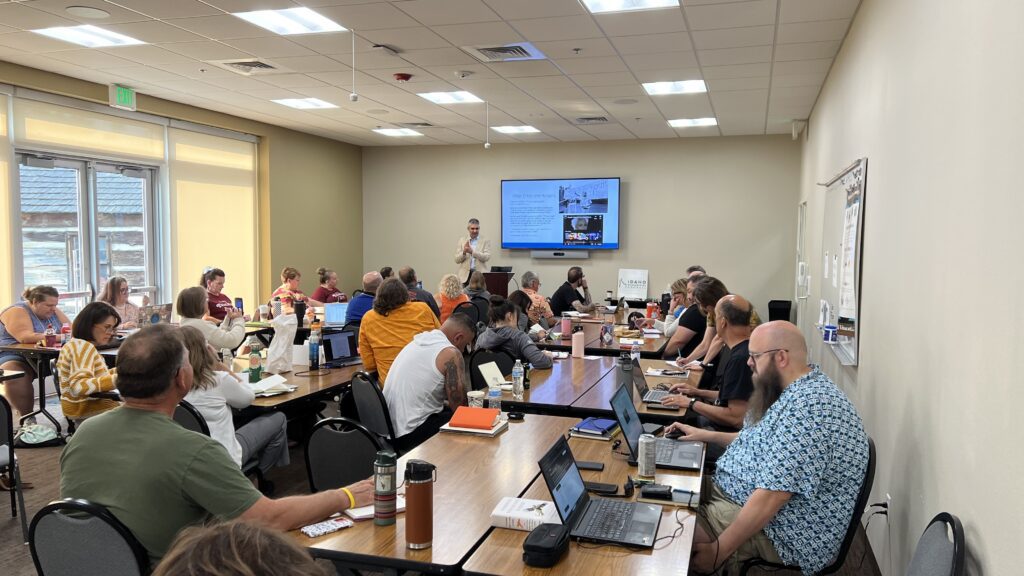
For 40 Years, the Idaho Humanities Council has hosted a weeklong Summer Teacher Institute for educators—all expenses paid
For 40 years, the Idaho Humanities Council has hosted an annual weeklong Summer Teacher Institute. Hundreds of teachers from almost every county in Idaho have taken part in this exceptional professional development opportunity.
About 30-40 teachers annually are accepted. The Idaho Humanities Councils provides all expenses – room, board, texts and materials, and a $250 travel stipend. They actively seek applicants from every region of the state and select participants to provide a balance in regions, disciplines taught, grade levels taught, gender, and a mix of new participants with veteran institute participants.
The 2025 Summer Teacher Institute takes place at the Idaho State Museum and Boise State University in Boise. The theme is “250 Years of American Dreams: The Past, Present, & Possibilities.” As the nation prepares to commemorate the 250th anniversary of the signing of the Declaration of Independence, this year’s Institute aims to prepare Idaho teachers to mark this occasion with their students throughout the 2025-2026 school year.
Learn more about the Idaho Humanities Council.
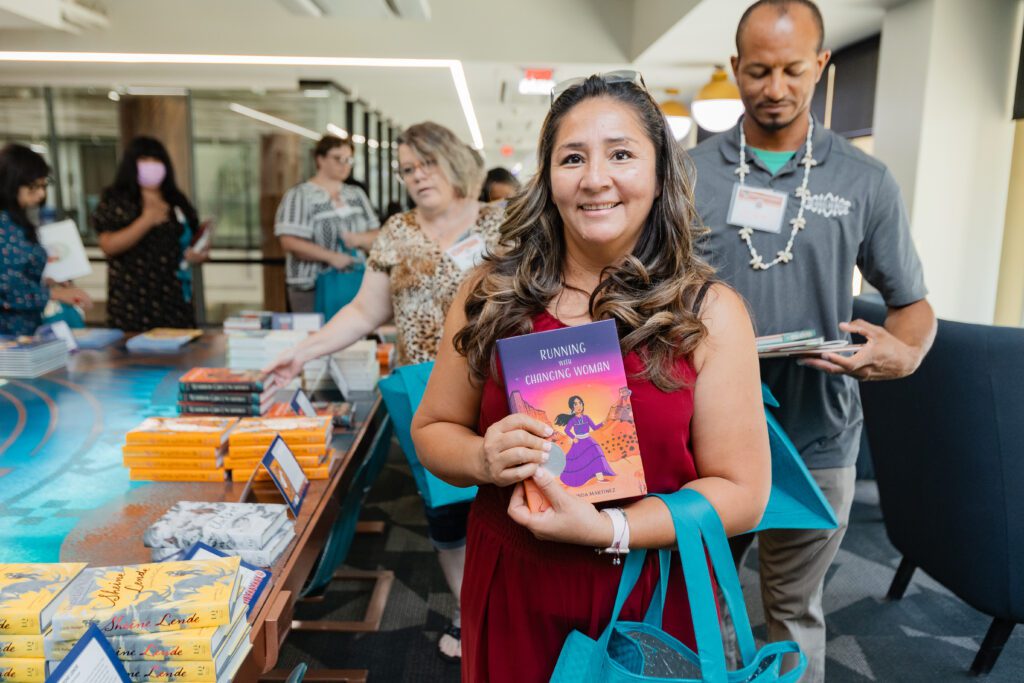
Arizona Humanities partnered with other state organizations to hold an Indigenous Literacy Symposium for K-12 teachers
In 2024, Arizona Humanities partnered with the Arizona Department of Education, the Arizona State University – Labriola National American Indian Data Center, and the Arizona State Library to produce a free K-12 Indigenous Literacy Symposium for Arizona teachers focused on literacy development with Native American students. Teachers had the opportunity to learn about evidence-based instructional strategies, network with other educators, earn six hours of professional development credits, and walk away with free books for their classroom.
Learn more about Arizona Humanities.
Humanities Texas offers free content-intensive webinars led by prominent scholars—tailored to the needs of Texas teachers

Humanities Texas partners with the state’s leading universities and cultural organizations to conduct in-person and online institutes and workshops supporting Texas classroom teachers’ intellectual and professional development.
These programs—which are free of cost to teachers and their schools—offer teachers the opportunity to work closely with prominent humanities scholars to explore topics at the heart of the state’s social studies and language arts curricula.
Targeting early-career teachers in areas with low student achievement on state assessments, these programs emphasize content-intensive training and skills-based learning. Since 2003, over 7,800 Texas teachers representing more than half the state’s school districts have participated in these programs.
Recordings of online workshops are available for free on the Humanities Texas website.
Learn more about Humanities Texas.
What are Humanities Councils?
Humanities councils reach millions of Americans each year with their programs, grants, and digital services.
There are 56 state and jurisdictional humanities councils, one in each state, territory, and Washington, DC. Established in 1971 by Congress following the creation of NEH, their mandate is to make outstanding public humanities programming accessible to everyday Americans. Humanities councils are independent nonprofits that use federal funds—distributed through the National Endowment for the Humanities—to make sure every community in their state, no matter what their geography or resources, has access to high-quality humanities programming and grants.
Because each state and territory has unique needs, each council is, by necessity, unique as well. Humanities councils work closely with partners across their state to tailor grants and programs to their state’s specific culture and challenges.
If you are a journalist or producer and would like to learn more about any of these stories or be connected with humanities councils and their grantees, please contact the Federation at connect[at]statehumanities.org.
